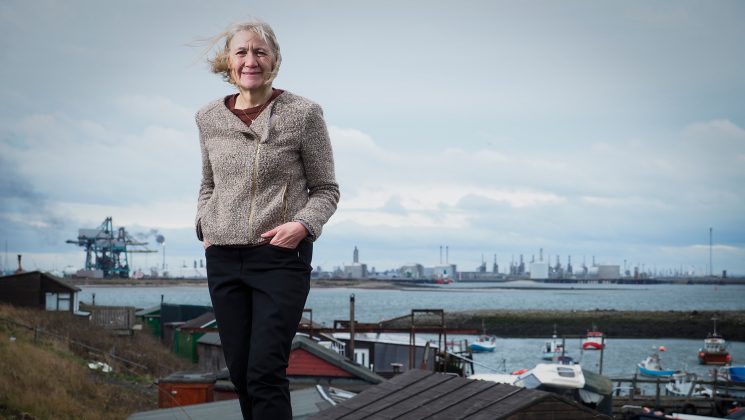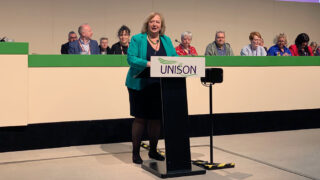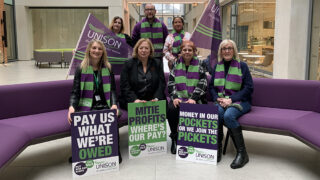We’re all aware that there’s a general election on 8 June. A great deal depends on it, not least the future of public services, the NHS, the wage packets and livelihood of UNISON members, and life in the UK after Brexit.
But there are many other elections before June, all of which will have some impact on people’s lives.
On 4 May voters will have their say in local government elections in England and Wales and council elections in Scotland. As well as those, the people of six English “city-regions” will have the chance to vote for a new figure on the political landscape – the metro mayors.
So after Scotland, Wales and Northern Ireland, devolution is finally reaching the English regions.
Introduced as part of the Cities and Local Government Devolution Act of 2016, the metro mayors will be at the head of new combined authorities – made up of representatives of the key local councils – which will exercise significant power over such areas as housing, transport and even health.
The first tranche of metro mayors will be elected in Cambridgeshire and Peterborough, Greater Manchester, Liverpool, Tees Valley, West Midlands and West of England.
And UNISON is working to ensure that public services are at the forefront of people’s minds during those elections.
The union caught up with three Labour candidates on the campaign trail: MP Andy Burnham, local council leader Sue Jeffrey and MEP Siôn Simon.
One theme in particular was common between them – the desire to represent people who have been forgotten by Westminster, to take “real power to do things for ourselves.”
Greater Manchester: Andy Burnham
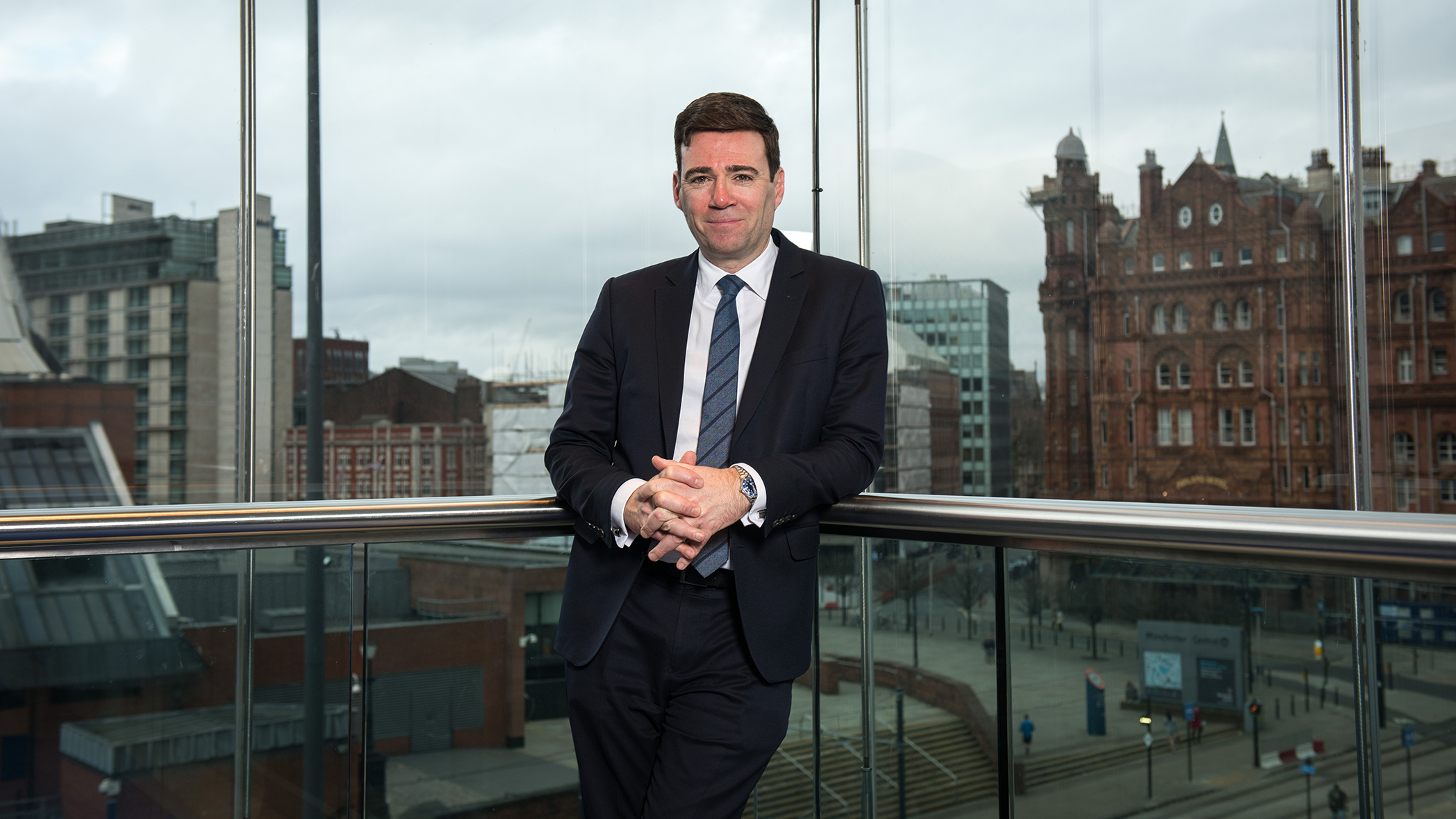
“This is Manchester. We do things differently here.”
Those words open Andy Burnham’s campaign manifesto. But they’re not his. The former Labour culture secretary is quoting his friend, the late, legendary Tony Wilson, who helped to shape Manchester’s music industry in its glory days in the Eighties and early Nineties.
Burnham used to spend student summers working in Manchester and can reel off the formative concerts he attended with his brothers. “The Stone Roses at the Empress Ballroom Blackpool – if you speak to anyone round these parts they will say that was the best ever gig. The Smiths at Salford University. New Order with The Happy Mondays at what used to be the GMEX. I saw them all.”
If elected, he intends to use the mayor’s “soft power” to champion the city’s music scene, for example by supporting venues and introducing more late-night travel. “The last train where I live is just before 11pm,” he laughs. “I don’t think I’ve ever seen an encore here.”
While culture doesn’t feature in Burnham’s wide-ranging, ambitious manifesto, the sentiment perfectly illustrates this highly approachable politician’s strong connection to the area.
Because of his support of Everton football club and his advocacy for justice for the Hillsborough families, Burnham is often pigeon-holed as a Liverpudlian. He was certainly born there, but spent his childhood living between the two cities and has been the MP for Manchester’s Leigh constituency for 16 years.
And he asserts: “It was never really an option that I would go to Liverpool.”
The two-minute homecare visit
Andy Burnham was attending a meeting of Greater Manchester Citizens, the charity which promotes community organsing for social justice, when a UNISON rep handed him the work rota of one of the union’s members, a homecare worker.
“This was a time sheet for her working day. It’s a total horror story,” he says. “Forget the 15-minute visit culture – this is the two-minute visit culture.
“She starts on a Friday at 7.30am, with her first visit, and finishes at twenty past midnight – 48 house calls. One of them really is two minutes. Then she starts again at three in the morning, until past midnight. And then she starts again on the Sunday, at 4.30.
“I think this is borderline criminal. This is a migrant worker, who we were told by the UNISON representative can’t wash her uniform because she doesn’t have time.
“This is the reality of social care in our city region and, indeed, around the country. And if it doesn’t bring a sense of utter despair to us all, then I really don’t know what would.
“Not only are the people receiving these visits not being properly cared for, but the people providing them are not being properly cared for either.”
Greater Manchester has negotiated the broadest devolution of powers, to include health and social care and the transfer of the Police and Crime Commissioner role to the new mayor. And Burnham, whose top-drawer experience includes a notable stint as health secretary, is embracing the challenge.
He has spoken out against the “callous culture” of social care provision in the region, and praised UNISON for its campaigning work on the issue.
And one of the signature proposals of his election manifesto is for an integrated National Health and Care Service.
The service would provide users with a “single point of contact for all their care needs” and allow GPs to offer patients a range of non-traditional support, including counseling.
And the manifesto states: “Over time, we will bring social care staff into the NHS family, with proper training and support and more opportunities for career progression.
“We will require care workers to be paid the living wage and end the business models that rely on exploitative zero hours contracts.”
Focusing on youth
Mr Burnham’s manifesto was developed after consultation with the public, and also includes plans for transport, housing and skills.
But the keystone is its focus on young people, with initiatives including a drive to improve technical education, a free bus pass for 16 to 18-year olds and the creation of new pathways to employment with the NHS and the police force.
“Young people are Westminster’s target for cuts. But for us they will be a priority for investment,” he says.
The most prominent of the mayoral candidates, he suggests that the London-centric nature of central government made his bid inevitable.
“When I grew up here I had a strong sense that we were treated like second-class citizens. We do live in an unequal country. I want better for Greater Manchester and for the North more generally.
“Westminster isn’t focussed enough on the reality of people’s lives. And it’s not going to change any time soon. It’s not going to close the north-south divide. So I feel that devolution is the best vehicle for the kind of change that I want to see.”
Tees Valley: Sue Jeffrey
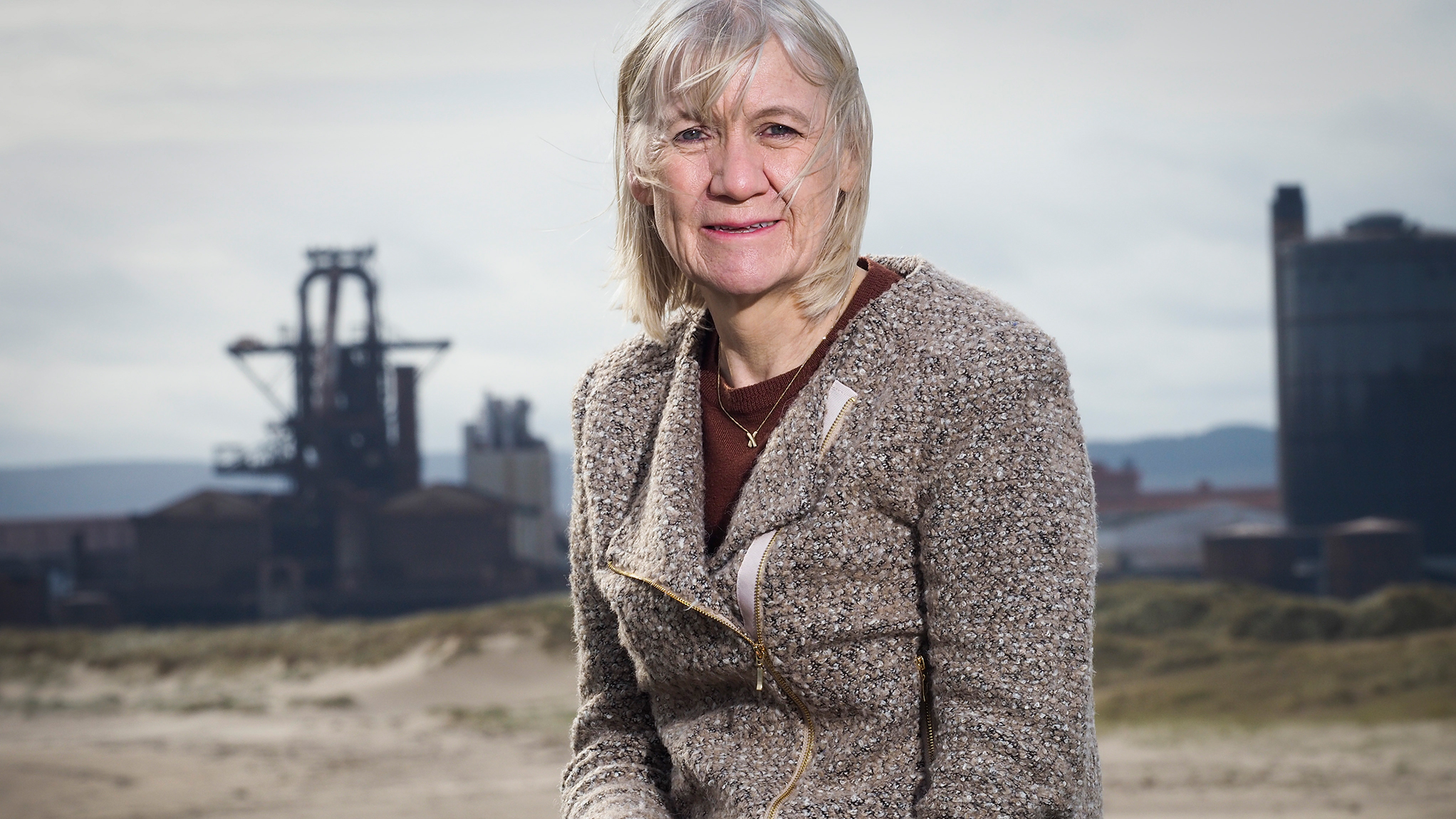
When Sue Jeffrey says “I know my patch” it’s with a smile and considerable understatement. For this council leader and UNISON member knows the north-east towns that make up the Tees Valley through and through.
The leader of Redcar and Cleveland Council has lived on Teeside for 37 years and worked across the region, in jobs ranging from a housing officer to executive director of the Yorkshire and Humber Regional Assembly, an earlier experiment in devolution which ended, she jokes “after my job was abolished by an Act of Parliament.”
Originally from Somerset, she moved north as a student, met her future husband Jim and stayed. He’s a councillor too, the pair of them representing the same South Bank ward in Redcar.
“You’d be surprised how many councillor couples there are these days,” she says. “I think we’ve got three currently on our council. I met my husband before either of us were councillors, but obviously we have shared values. And we both continue to see public service as a key part of our lives.
“Ours is a very disadvantaged ward,” she continues. “And what’s so important about the mayor’s job is that it could achieve something for the people Jim and I represent, people who have missed out for years, who have been forgotten.”
The North neglected
The wind is beginning to get blustery as Ms Jeffrey points across the Tees estuary towards Hartlepool and the petrochemical installations that comprise a big part of the area’s economy, and later towards the SSI Redcar steelworks, which closed in 2015 with the loss of 2,000 jobs.
“I think areas of the north of England suffer disproportionately whenever there is any economic shock to the UK,” she suggests.
“When the crash came in 2008 we were just on the cusp of a recovery here, but were immediately pushed back down again. The government’s emphasis was on supporting the banking industry – our industry was completely neglected.
“I am convinced that London-centric policies have caused us major issues. What devolution’s going to do is allow us to shape policies locally, to support our industry and our people, so that when those shocks come along we are more resilient.”
That’s why the Tees Valley combined authority has negotiated powers for growing the local economy. Priorities will include education, employment and skills, encouraging new local businesses, and improving the affordability and access of public transport.
Ms Jeffrey also wants to introduce a Tees Valley Living Wage; her council already pays it.
When asked how long she’s been a UNISON member she struggles to recall. “Since… forever,” she laughs. She’s concerned that public services are “cut to the bone” and adds that an improved economy is vital for their future.
She agrees that it’s unfortunate that women only make up a fifth of all the mayoral candidates. “It’s absolutely crucial that these positions are representative of the communities they’re serving. When it’s primarily men who are selected as candidates it’s a disservice to those communities.”
If she does win, she wants to harness what she feels is the strength of the close-knit Teeside community to take advantage of its new opportunities. “I think we’re up for that. We just need to get on with it”.
West Midlands: Siôn Simon
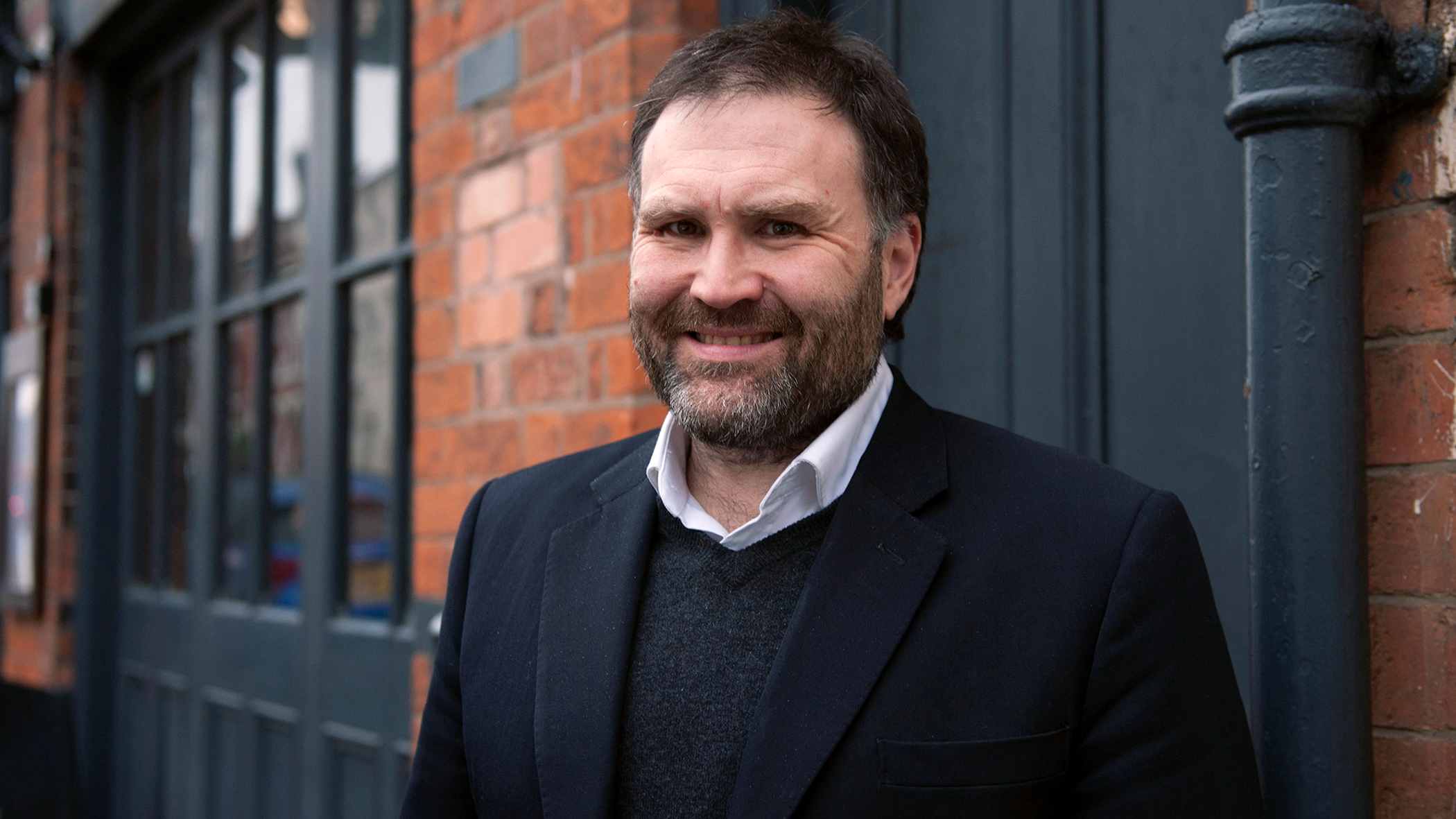
Ask Siôn Simon why he likes the West Midlands and the answer comes in a torrent of encyclopaedic enthusiasm.
“The very best thing about the West Midlands is the people – good, kind, self-deprecating, funny, talented, innovative people who have done extraordinary things.
“This is the region which built the first steam engines, just on the border of Handsworth and the Black Country, which built the first iron bridge, the Spitfire and the Land Rover. Even now the West Midlands is one of the world’s great centres of automotive production, and in Coventry and Warwickshire we are at the vanguard of new car technology.
“We’re also the region of Shakespeare, George Elliot, Tolkien and Elgar, heavy metal and Ska.”
He could go on. But sadly, this litany of achievement comes with a catch. “If you ask people on the street about where they live, they’re downbeat, they’re not positive or optimistic at all. We’ve lost our sense of pride in ourselves and our region.”
As he muses over a cup of coffee in the city’s historic Jewellery Quarter, Mr Simon has no doubt of the reason for that. “If you’re downtrodden, you’re not going to feel good about yourself.
“In the Seventies we had an average wage a lot higher than the national average – now the West Midlands is the zero-hours contract capital of Britain. We’ve had significant structural unemployment for decades.
“We’re never going to be the top priority for London. If we’re going to sort these problems out, we need to be given back the tools to do it ourselves.”
So-called progress
His parents are Welsh (his first named is pronounced ‘Sean’) but he was born in Doncaster and raised in Birmingham. He was the Labour MP for Birmingham Erdington between 2001-2010 and is currently MEP for the West Midlands.
To start with, the city-region’s strongest powers will be in transport. He’s keen to make buses more affordable, with an eye on subsidised fares for young people in further education (one of his two government posts was as a further education minister) and to reintroduce night-time travel so that shift workers don’t have to spend their earnings on mini-cabs.
“When I was a kid in the West Midlands there was a night bus,” he notes dryly. “After 30 years of ‘progress’ there isn’t.”
He estimates that the West Midlands needs to build 300,000 new homes in the next 15 years, and wants to “clean up the private rental sector” by introducing a licencing system for private landlords.
Homelessness, too, will be an early priority. He gestures through the window and says that a homeless person died in a doorway nearby, a couple of months ago.
“Homelessness in London went up last year by 3%. In the West Midlands it went up by 53%. That’s just shocking. This is a problem we know how to solve. It’s not rocket science, but political will.”
Although he doesn’t mention it until asked, Mr Simon has a rare, genetic condition that will, eventually, lead to blindness. For now, he says matter-of-factly, “I’ve actually got relatively little vision, but I manage. I do very well for my age.”
Standing for election to one of the biggest new jobs in British politics is doing very well indeed.

